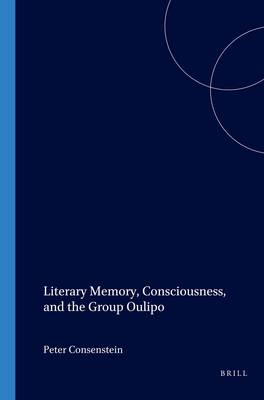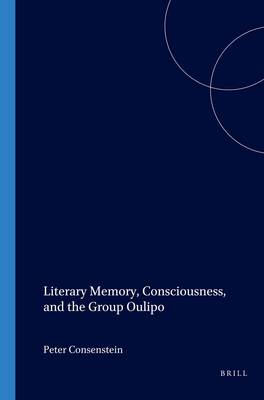
- Afhalen na 1 uur in een winkel met voorraad
- Gratis thuislevering in België vanaf € 30
- Ruim aanbod met 7 miljoen producten
- Afhalen na 1 uur in een winkel met voorraad
- Gratis thuislevering in België vanaf € 30
- Ruim aanbod met 7 miljoen producten
Zoeken
Omschrijving
The question of memory intrigues us more and more as industrialized societies move further and further away from the written word. In the past the role of memory was integral to literary history, precise mnemonics served as the support systems for erudition, and Mnemosyne was mother of the Muses. The group Oulipo, born in reaction to the Surrealists, proposes, invents, and applies novel literary constraints. Using memory, and best of all conscious memory, as a theoretical starting point, the implications of writing under constraint are analyzed. First, writing under constraint is viewed as a new mnemonics; second, the spiritual component of such a practice is shown to redefine a notion of inspiration; third, constraints and their relationship with games and society is highlighted; finally the manner in which they build a literary consciousness is studied through the lenspiece of contemporary neurobiological research. For the first time the work of the group Oulipo, and the member's emphasis on the function of literature, is placed in historical, cultural, and philosophical context.
Specificaties
Betrokkenen
- Auteur(s):
- Uitgeverij:
Inhoud
- Aantal bladzijden:
- 252
- Taal:
- Engels
- Reeks:
- Reeksnummer:
- nr. 220
Eigenschappen
- Productcode (EAN):
- 9789042014381
- Verschijningsdatum:
- 1/01/2002
- Uitvoering:
- Paperback
- Formaat:
- Trade paperback (VS)
- Afmetingen:
- 155 mm x 234 mm
- Gewicht:
- 430 g

Alleen bij Standaard Boekhandel
+ 235 punten op je klantenkaart van Standaard Boekhandel
Beoordelingen
We publiceren alleen reviews die voldoen aan de voorwaarden voor reviews. Bekijk onze voorwaarden voor reviews.











